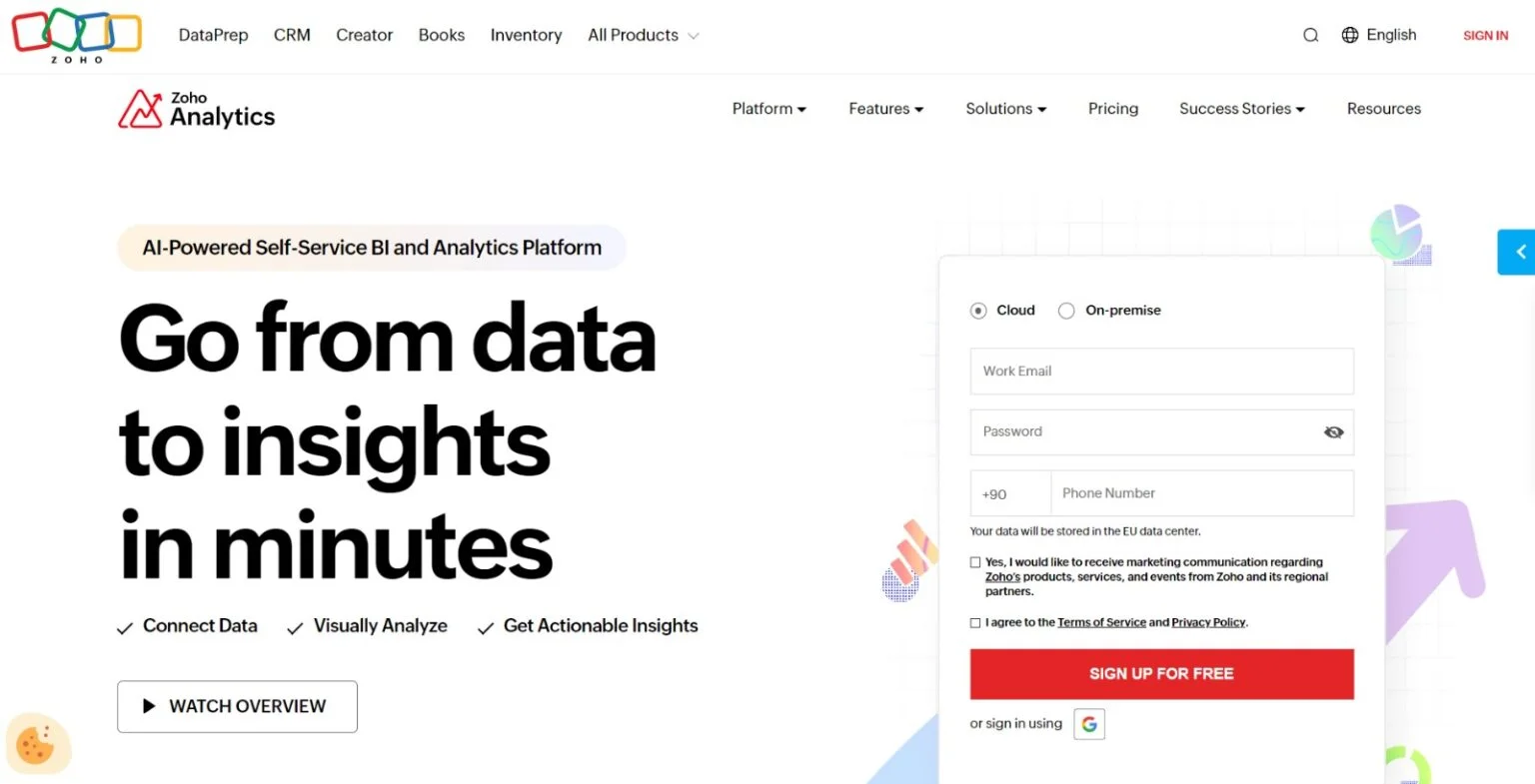
AI Tools for Automotive Marketplaces: Transforming Online
AI Tools for Automotive Marketplaces: Transforming the Online Automotive Ecosystem
In the fast-paced world of online automotive sales, the competition for customer attention and trust is fierce. Marketplaces play a pivotal role in bridging the gap between sellers and buyers, and the AI integration in marketplaces is reshaping this landscape. From streamlining vehicle listings and optimizing pricing strategies to enhancing customer interactions and driving targeted marketing campaigns, AI-powered automotive solutions and tools are revolutionizing how online automotive marketplaces operate.
In today's blog, we'll explore some of the most impactful AI tools available, and how they are empowering automotive marketplaces to thrive in an increasingly digital-driven world.
Why Use AI Tools for Automotive Marketplaces
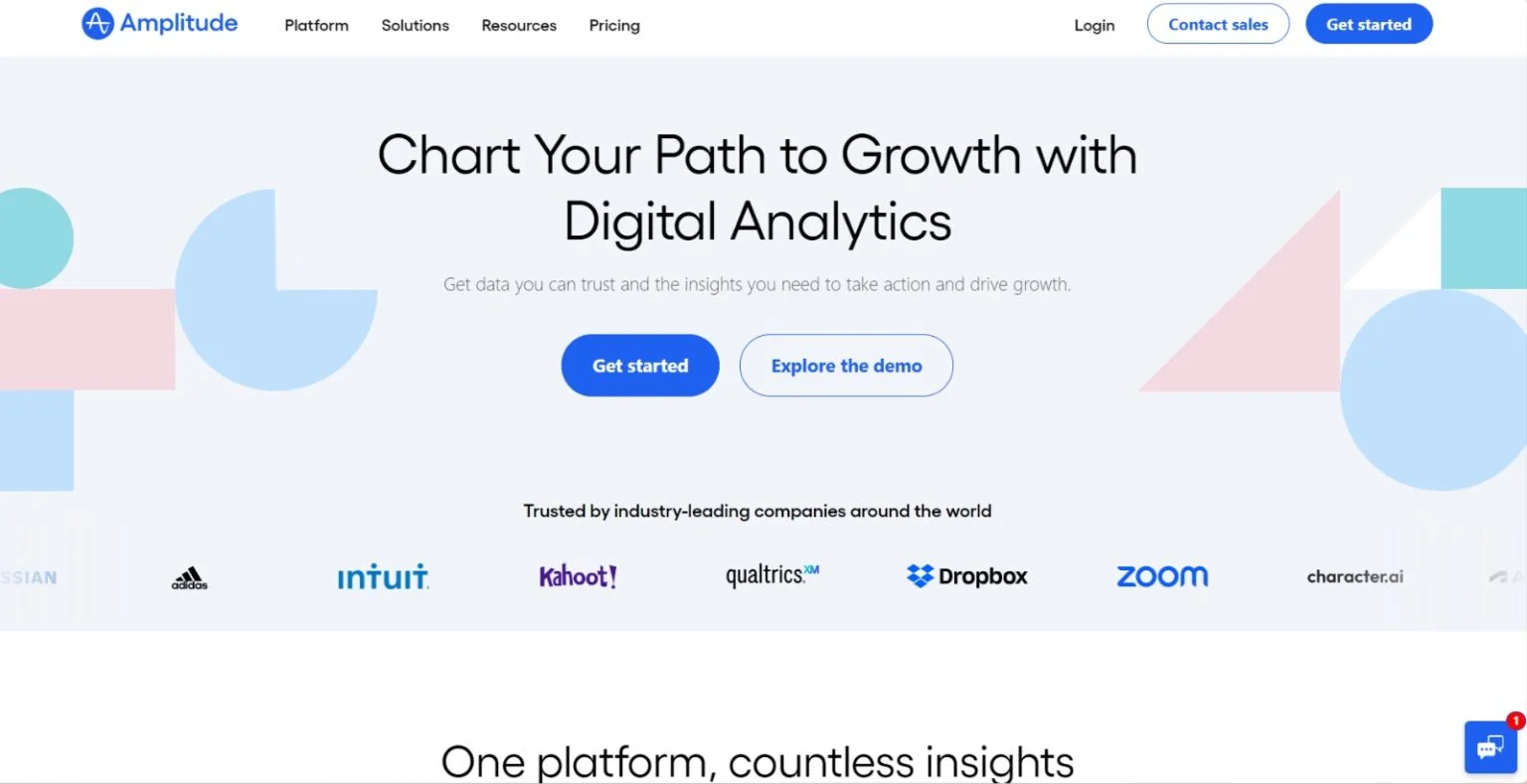
AI tools help marketplaces streamline the process of creating and managing high-quality car advertisements. In this day and age, driving automotive marketplace efficiency through improving click-through rates (CTR) and enhancing user experience should be considered by any marketplace. AI tools also come in handy for online car ad optimization processes. They may;
Ensure all listings meet professional presentation standards,
Offer features like 360-degree views and zoom-enhanced visuals to provide a more immersive browsing experience,
Help sellers create eye-catching ads that stand out among competitors,
Reduce the time required for sellers to create listings,
Become a part of the automotive ecosystem transformation,
and more. Now, let's check different tool alternatives.
1. Car Studio AI
Car Studio AI is a cutting-edge tool designed to simplify and enhance automotive photography. Using advanced artificial intelligence, it transforms car photos taken in any environment into professional-grade images with studio-like quality. By automatically removing backgrounds, adding realistic shadows, and creating polished visuals, Car Studio AI ensures every vehicle looks its best, boosting customer engagement and trust.
With Car Studio AI, producing professional car ad visuals is easier than ever. You can automate photo uploads and editing processes, ensure compliance with marketplace quality standards, and generate professional, standardized visuals instantly from raw car photos. You can also automate background removal, shadow synthesis, and enhancement processes and deliver consistent quality across all listings, boosting buyer confidence and trust.
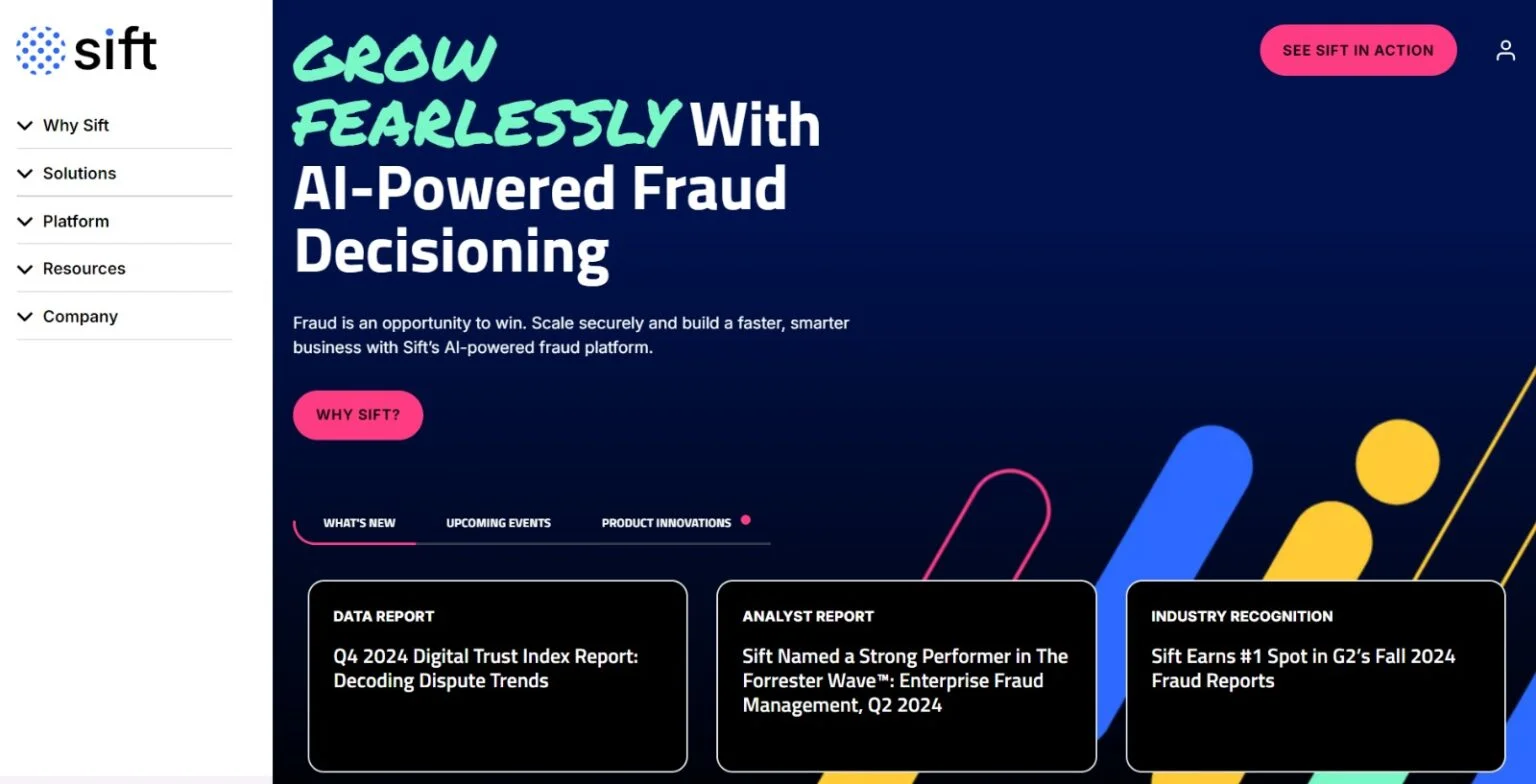
ProsConsCost– Standardizes vehicle photography for cohesive branding
– Lets users create studio-quality images directly from their smartphones or tablets
– Enhances CTR on online platforms
– User-friendly interface
– Initial subscription cost could be high, could request a custom price offer and lower the cost
– Brief training required for optimal use
Monthly Starter Pack – $74.99 per month
Yearly Starter Pack – $56.25 per month
2. Clerk.io
Clerk.io is an AI-driven e-commerce personalization platform designed to enhance online shopping experiences by delivering relevant content to customers without relying on cookies. It offers a suite of tools, including dynamic search results, tailored product recommendations, targeted email campaigns, and audience segmentation, all aimed at optimizing various aspects of webstores to improve performance and profitability.
You can seamlessly integrate Clerk.io with your existing e-commerce platform to begin utilizing its features. Implementing Clerk.io's search functionality provides your customers with relevant search results, enhancing their shopping experience.
ProsConsCost– Delivers personalized shopping experiences without relying on cookies
– Offers a range of features that cover various aspects of the customer journey
– Provides data-driven recommendations that enhance engagement and sales
– The cost of implementing Clerk.io may be a factor for smaller businesses with limited budgets
– Depending on the existing e-commerce platform, integration may require technical expertise and time
$99 Starter price, pay per feature model
3. Cloudinary
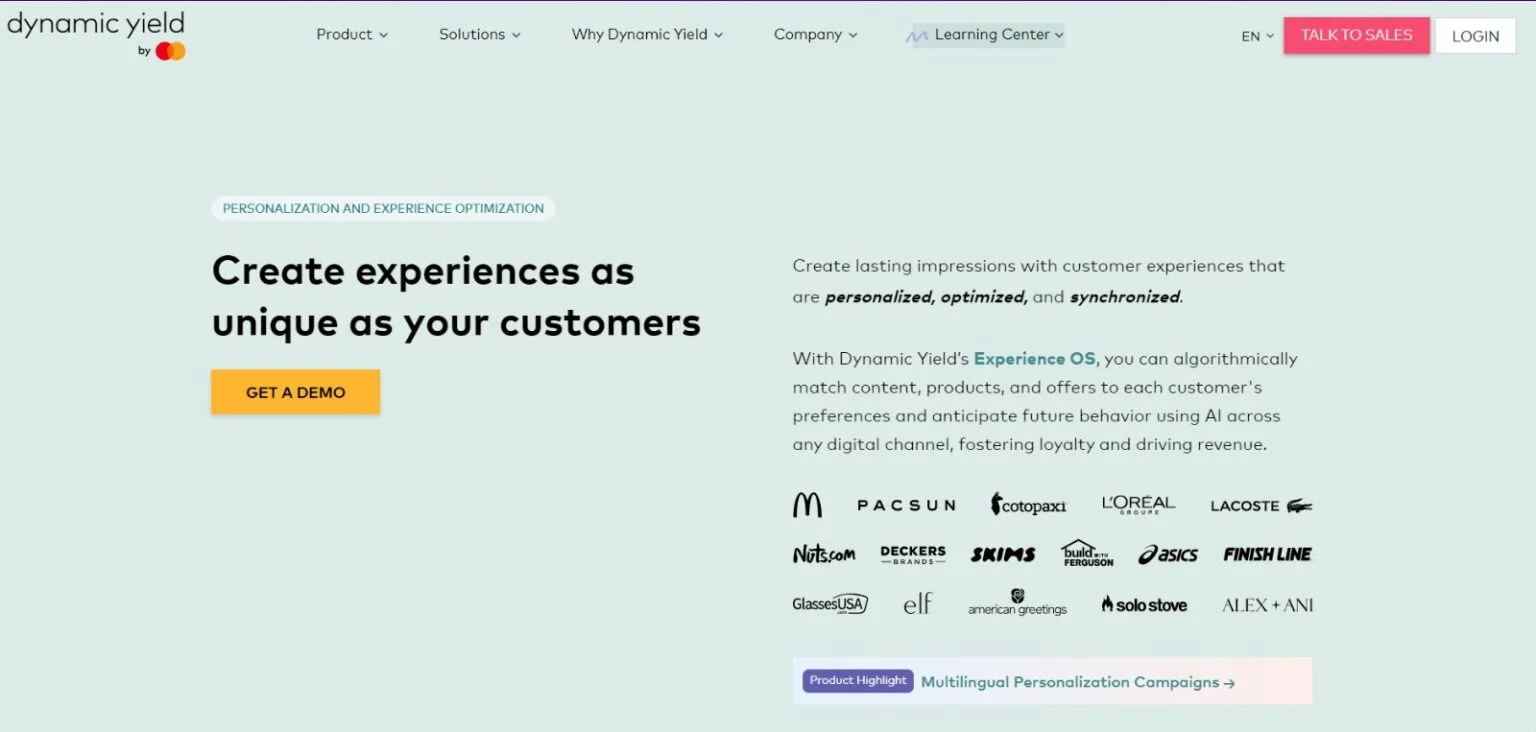
Cloudinary is a comprehensive cloud-based media management platform that enables businesses to efficiently handle image and video uploads, storage, optimization, and delivery. By providing a suite of AI-powered APIs and tools, Cloudinary streamlines the entire media pipeline, ensuring optimal performance and seamless integration across web and mobile applications. This makes Cloudinary one of the popular AI tools for automotive marketplaces you can use.
After signing up, you can use Cloudinary's APIs or SDKs to integrate media management capabilities into your web or mobile applications, upload images and videos to Cloudinary's cloud storage using the provided interfaces or APIs, and apply desired optimizations and transformations to your media assets through Cloudinary's platform to ensure they meet your application's requirements.
ProsConsCost– End-to-end solutions for handling all aspects of image and video management
– Designed to accommodate businesses of all sizes
– Enhances performance without manual intervention thanks to AI
– Advanced features and higher usage levels require paid plans, which may be a factor for smaller businesses
– New users may need time to fully understand and utilize the platform's extensive features and capabilities
Offers limited free plan along with paid options
4. Algolia
Algolia is a leading AI-powered search and discovery platform that enables businesses to deliver fast, relevant, and scalable search experiences across websites and mobile applications. Founded in 2012, Algolia provides a suite of APIs and tools designed to enhance user engagement by delivering real-time, personalized search results.
As an automotive marketplace, you can implement Algolia's APIs into your website or mobile application to enable search functionality. Upload your content to Algolia's platform, where it is indexed for efficient search retrieval. You can configure search relevance, ranking criteria, and personalization settings to align with your business objectives.
ProsConsCost– Delivers real-time search results, enhancing user experience
– Capable of handling large volumes of search queries
– Offers developer-friendly APIs and comprehensive documentation
– Pricing may be a consideration for smaller businesses or startups with limited budgets
– Advanced customization and optimization may require a deeper understanding
Offers limited free plan along with paid options
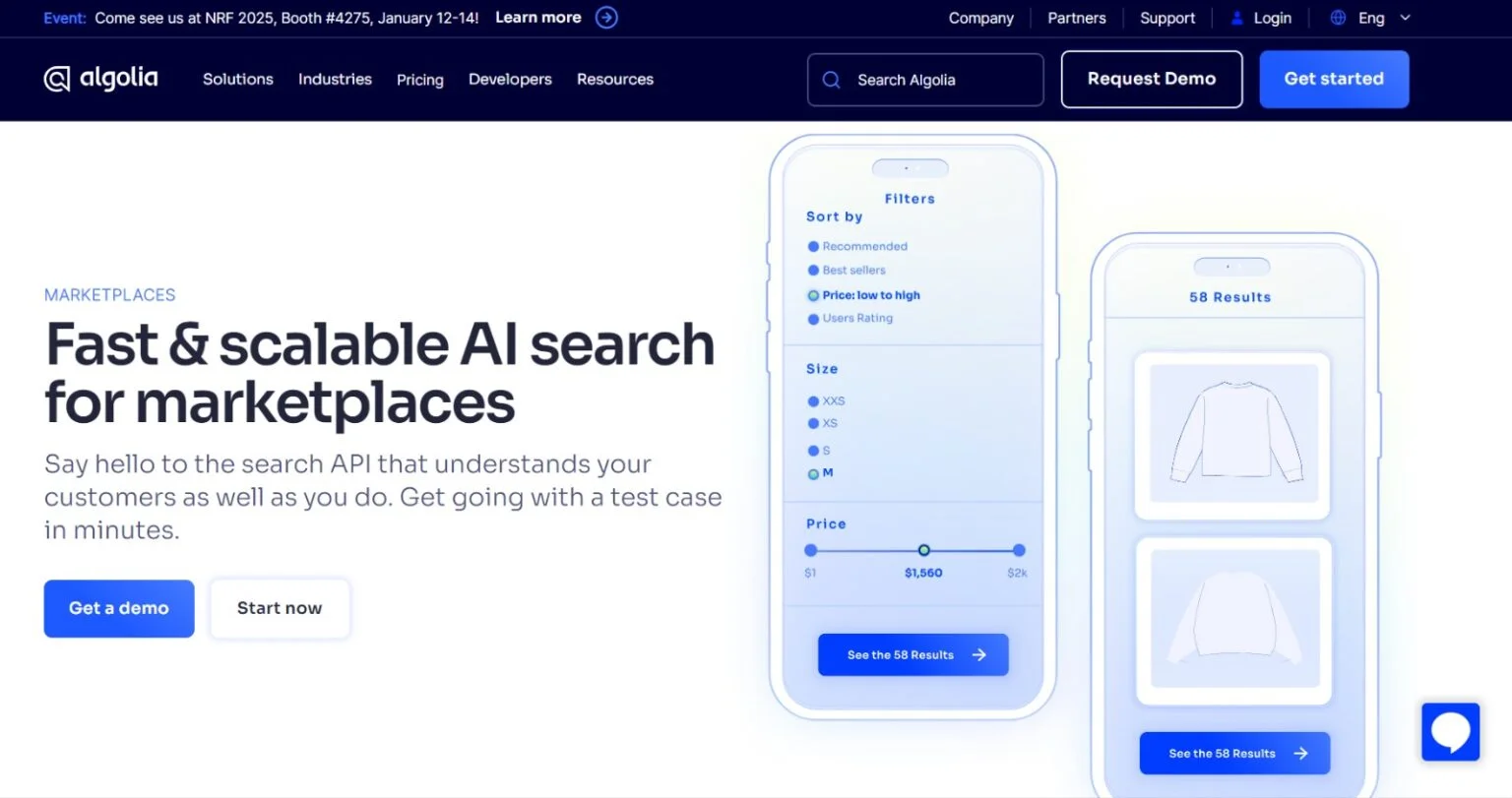
5. Dynamic Yield
Dynamic Yield is an AI-powered personalization platform that enables businesses to create tailored digital experiences for their customers. By leveraging machine learning algorithms, it delivers personalized content, product recommendations, and targeted offers across various channels, including web, mobile apps, email, and kiosks. This approach enhances user engagement, fosters brand loyalty, and drives revenue growth.
Dynamic Yield is a viable option for marketplaces searching for automotive marketplace efficiency. You can incorporate Dynamic Yield into your digital platforms using their APIs and SDKs, ensuring seamless connectivity with your existing systems. Then, you can gather user data and behavior insights to build comprehensive customer profiles, enabling more accurate personalization.
ProsConsCost– Offers a wide range of personalization capabilities, allowing businesses to tailor experiences
– Designed to accommodate businesses of various sizes
– Includes robust experimentation tools to test and optimize personalization strategies
– Integrating and configuring the platform may require technical expertise
– The investment required for Dynamic Yield's services may be significant
Starting at $35,000 per year
6. Sift
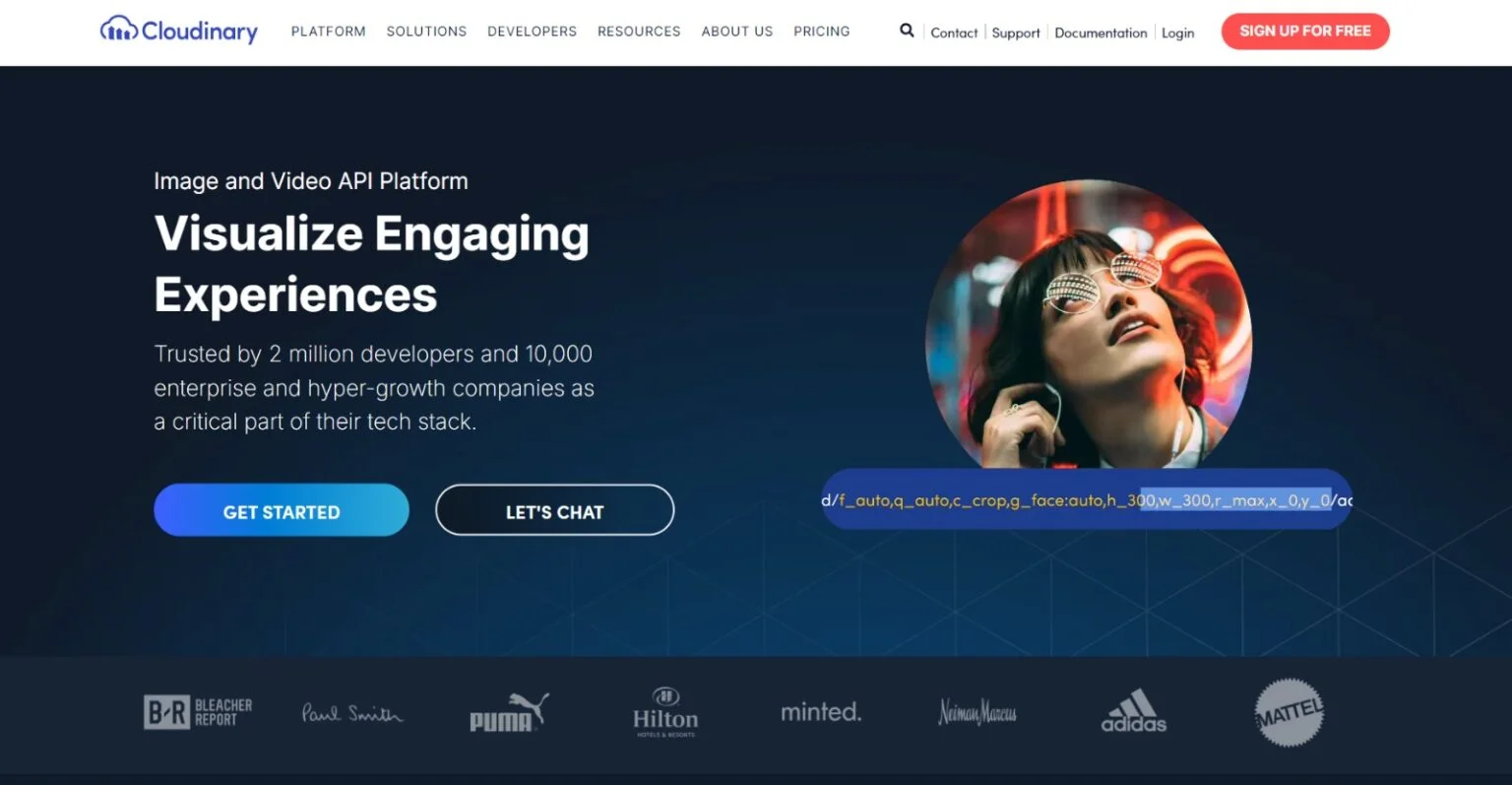
Sift is an AI-powered fraud detection and prevention platform designed to help businesses identifand mitigate fraudulent activities across digital transactions. By leveraging machine learning and a vast global data network, Sift provides real-time insights and automated decision-making to py rotect against various types of fraud, including payment fraud, account takeover, and content abuse.
Autumotive marketplaces can utilize Sift's machine learning models to analyze user behavior and transaction patterns, identifying anomalies that may indicate fraudulent activity. They can also set up automated workflows to handle suspicious activities, such as flagging or blocking high-risk transactions, reducing the need for manual intervention.
ProsConsCost– Offers a wide range of solutions to address various fraud scenarios
– Ensures effective fraud prevention as your business grows
– Provides instant risk assessments
– Integrating Sift's solutions into existing systems may require technical expertise and resources
– The investment required for Sift's services may be significant
$200 per month
7. Amplitude
Amplitude is a leading digital analytics platform that empowers businesses to gain deep insights into user behavior, enabling data-driven decisions to enhance product experiences and drive growth. By unifying data with behavioral analytics and AI automation, Amplitude provides a comprehensive solution for understanding and optimizing the customer journey.
Amplitude offers detailed insights into how users interact with your product, identifying trends and opportunities for improvement. It also provides real-time data on website performance, user engagement, and conversion metrics.
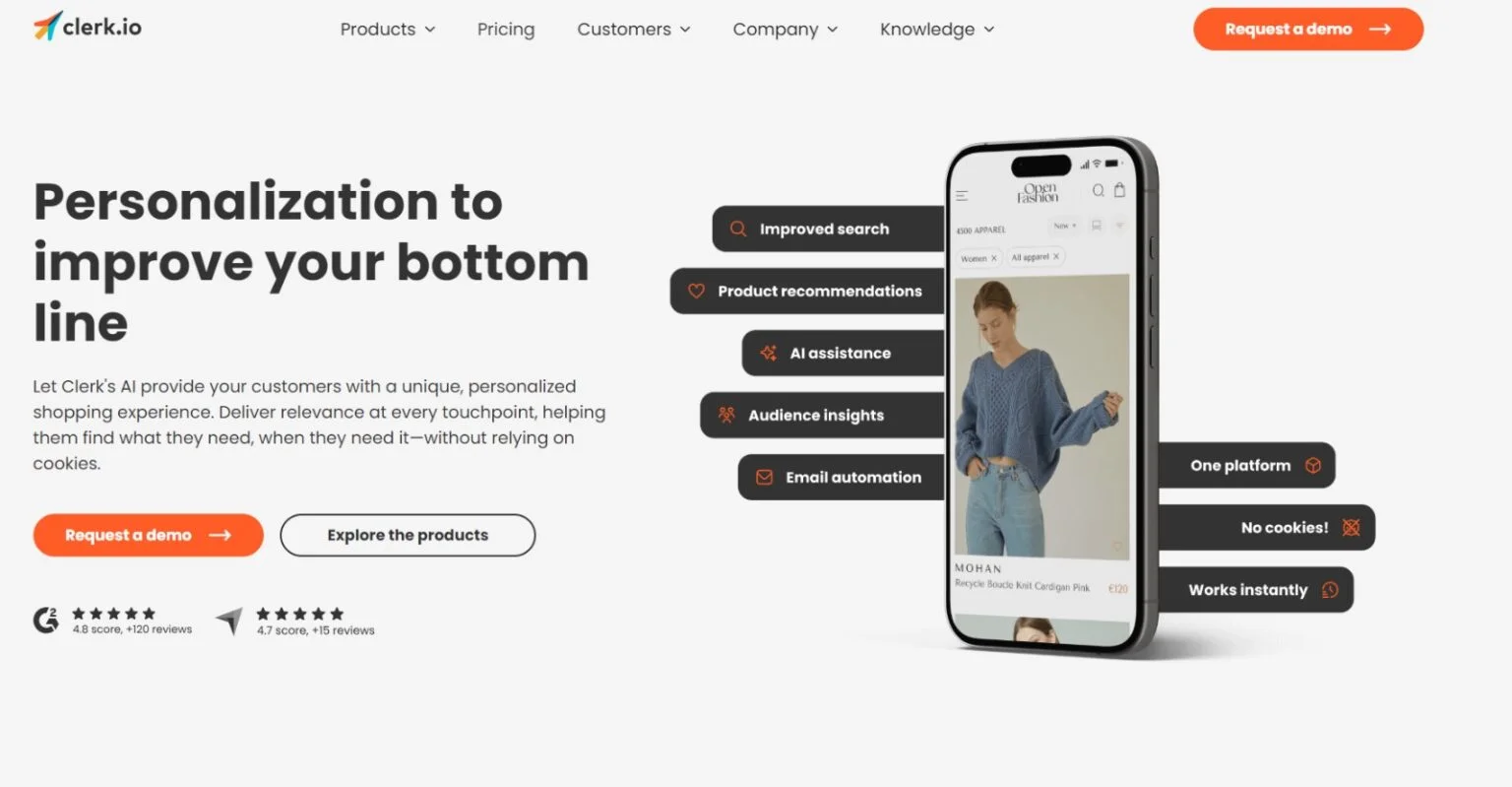
ProsConsCost– Provides a wide range of tools for in-depth analysis of user behavior and product performance
– Suitable for businesses of all sizes
– Features an intuitive interface that allows teams to easily navigate and utilize the platform
– Advanced features may require time and training to fully leverage, especially for users new to analytics platforms
– While offering a free tier, access to premium features and higher data limits may involve significant investment
Offers limited free plan along with paid options
8. Zoho Analytics
Zoho Analytics is an AI-powered self-service business intelligence (BI) and data analytics platform that enables users to seamlessly integrate, prepare, and analyze data from various sources. It offers a comprehensive suite of tools designed to transform raw data into actionable insights through intuitive visualizations and dashboards. Zoho can connect and blend data from over 500 sources, including databases, business applications, cloud drives, and custom data sources, facilitating a unified view of your business metrics. This makes it one of the driving forces behind automotive marketplace efficiency.
After signing up, you can import data from your preferred sources using the platform's integration capabilities; then, you can cleanse and transform your data using Zoho DataPrep to ensure accuracy and consistency. You can share your analyses with stakeholders, assign roles and permissions, and collaborate to derive actionable business insights.
ProsConsCost– Offers a wide array of tools for data integration, preparation, analysis, and visualization within a single platform
– Designed for ease of use
– Suitable for businesses of all sizes
– While user-friendly, mastering the platform's advanced features may require time and training
– Connecting with certain data sources or custom applications might necessitate technical expertise
Basic plan costs €24 per month, billed annually on yearly plan
Conclusion
AI is fundamentally transforming the online automotive marketplace, offering solutions that streamline operations, enhance customer experiences, and drive business growth. From professional-grade visual enhancements with Car Studio AI to advanced analytics from platforms like Amplitude and fraud prevention through Sift, these tools empower marketplaces to stay ahead in an ever-competitive landscape.
Marketplaces that embrace these technologies gain a significant edge by delivering seamless user experiences, optimizing listings, and fostering trust among buyers and sellers. AI-powered personalization tools like Dynamic Yield and Clerk.io further enable marketplaces to cater to diverse customer needs, creating lasting connections and driving engagement.
The integration of AI tools is no longer optional but a necessity for marketplaces looking to thrive in a digital-first world. By strategically adopting and effectively utilizing these innovations, automotive marketplaces can unlock new opportunities, attract top-tier users, and solidify their role as industry leaders in the evolving automotive ecosystem.
